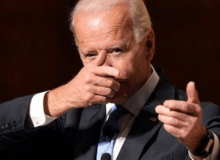When Benjamin Franklin visited London in 1766, he observed that the “British Welfare Act” actually had the opposite effect. Instead of assisting the poverty-stricken, government welfare in point of fact had exacerbated it. “There is no country in the world in which the poor are more idle, dissolute, drunken, and insolent,” he noted of the British. “The day you passed that act you took away from before their eyes the greatest of all inducements to industry, frugality and sobriety, by giving them dependence on somewhat else than a careful accumulation during youth and health for support in age and sickness…Repeal that law and you will soon see a change in their manners. St. Monday and St. Tuesday will cease to be holidays.”
Unfortunately for America, from the Progressive Era forward, we have purposefully ignored sound biblical principles regarding work and money, not to mention the Constitution. Eighteenth-century Europe which Franklin witnessed, therefore, has been more than duplicated. Our streets are now filled with the young and the restless who are constantly threatening to erupt—many of whom, it would be safe to say—are beneficiaries of government hand-outs. We are paying for our own demise.
How has our government waged a war, not on poverty, but on the poor themselves? Which sound principles of human nature, found in the Bible, have we set aside? What can be done to rectify the situation?
Poverty and Government
The general biblical principle is as follows. “Go to the ant, you sluggard; consider its ways and be wise! It has no commander, no overseer or ruler, yet it stores its provisions in summer and gathers its food at harvest. How long will you lie there, you sluggard? When will you get up from your sleep? A little sleep, a little slumber, a little folding of the hands to rest—and poverty will come on you like a thief and scarcity like an armed man” (Proverbs 6:6-11).
Poverty is a direct result from laziness. This is the general rule. “The hand of the diligent will rule, while the slothful will be put to forced labor” (12:24). Behind the political divisions in our once-great nation there lies an ethical law. The slothful descend into pauperism or servitude. Is this to say that every situation of poverty is self-inflicted? No. There are many cases for which the poor need to have provisions from compassionate people. But the government is the last machine that effectively supplies this. As Clarence Carson long ago wrote, government force intervening in these situations most frequently distorts reality and obscures which actions would be most economical (War on the Poor).
Consider the following principles
• Poverty Itself is Not Evil. God warns that most frequently it is affluence which offers more dangerous temptations and pitfalls than poverty. One can read about this in 1 Timothy 6:19-21. Many have deliberately chosen poverty. Witness number of religious persons throughout history who, for one reason or another, have taken vows of poverty.
• Poverty is a Signal. Giving an aspirin to one who has a viral disease may make that person feel better, but it does not alleviate the real cause of the sickness. So also, throwing money into poor neighborhoods or families alleviates symptoms, but does not cure the potential problem. It may be that there is too much “folding of the hands.” Poverty may indicate that someone is wasting resources instead of saving them. It may indicate that someone is producing something for which there is little need, such as a young musician who spends an inordinate amount of time on his guitar instead of making ends meet. Poverty in these cases is a good thing because it teaches one to re-allocate his/her resources and efforts.
• Government Distorts the Signals. Instead of allowing individuals who foolishly spend their time and effort pursuing non-productive areas to suffer the natural consequences of these decisions, the government skews the signals. The prime motivating factor that causes one to make better decisions is lacking what one needs. But the confiscation and re-distribution model disallows people to feel what they need—motivation. If passing grades are “given” to all students—as is now being done in most quarters—the motivating factor (poor grades) to study harder is removed. Thus, we have an “entitlement” generation being developed in schools and entering into society at large. Incentive to production, whether grades or wealth, is being nullified today in America. Tattoo parlors and The Lottery would probably go out of business if we allowed people to feel the consequences of their own foolish decisions.
• Poverty Cannot Entirely Be Abolished. Jesus himself said, “the poor you have with you always” (Matt. 26:11). The Council of Economic Advisors to President Lyndon Johnson (1964) disagreed with Jesus. “There will always be some Americans who are better off than others. But it need not follow that ‘the poor are always with us.’ In the US today we can see on the horizon a society of abundance, free of much of the misery and degradation that have been the age-old fate of man” (Carson, 30). President Obama thinks our Lord got it wrong and that the president’s ipse dixit can fix it by “closing the wage gap” and forcing businesses to pay for the non-skilled workers, which they may or may not need. Streets are filling with Bernie Sanders supporters who ignorantly suppose that not only is health care a “right” but that college education should be free.
Some may read the above lines and suppose that I am NOT for aiding the poor. Nothing can be further from the truth. However, from a constitutional and biblical standpoint this is to be handled at a personal and church congregational level. And, even then, the New Testament demands that churches distinguish between those who really are in need from those who might take advantage of the system. Read 1 Timothy 5 for some of these instructions.
In the end, Thomas Chalmers, the Scottish minister and political economist of the 19th century may have summed up America rather well. Examining the English experience of his day he commented, “State aid had been a mighty solvent to sunder the ties of kinship, to quench the affections of the family, to suppress in the poor themselves the instinct to self-reliance and self-respect—to convert them to paupers.” It appears that we cannot learn from history.
Only by returning to sound biblical principles can America hope to survive.
Tags: Bernie Sanders




















Join the conversation!
We have no tolerance for comments containing violence, racism, vulgarity, profanity, all caps, or discourteous behavior. Thank you for partnering with us to maintain a courteous and useful public environment where we can engage in reasonable discourse.